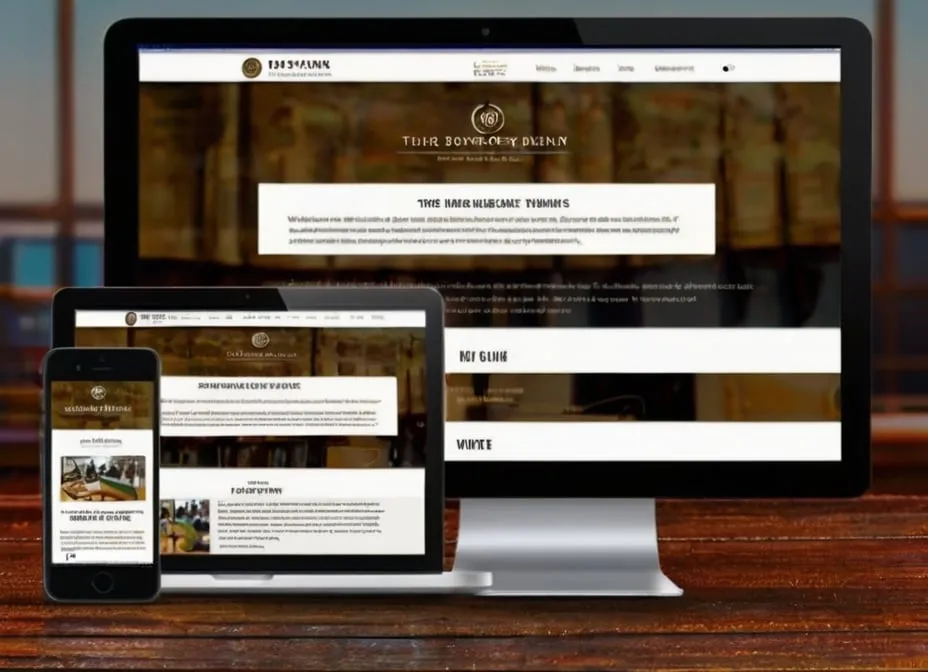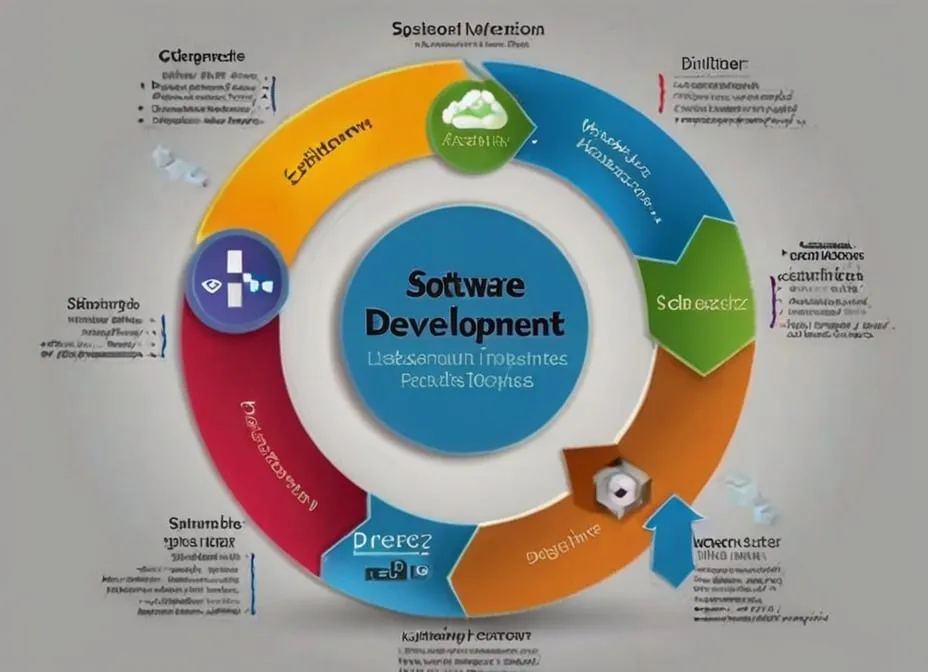Launch Your Tech Career with Freelancing & Consulting Platforms

1.1. What is the Gig Economy?
The gig economy is a labor market characterized by short-term contracts or freelance work instead of permanent jobs. In this economy, companies hire independent contractors or freelancers for specific projects or tasks instead of full-time employees.
1.2. Benefits of Freelancing
- Flexibility: Freelancers can choose when, where, and how they work. They can set their schedules and work from anywhere with an internet connection.
- Variety: Freelancing offers the opportunity to work on diverse projects and with different clients, preventing boredom and monotony.
- Work-Life Balance: With flexible schedules, freelancers can better balance their work and personal commitments.
- Higher Earning Potential: Skilled freelancers can command higher rates than traditional employees, especially in high-demand fields like tech.
1.3. Challenges of Freelancing
- Inconsistent Income: Freelancing often means an irregular income stream, requiring careful financial planning and budgeting.
- Finding Clients: Securing a steady stream of clients and projects can be a constant challenge, especially when starting.
- Lack of Benefits: Freelancers typically don't receive employer-provided benefits like health insurance, retirement plans, or paid time off.
- Self-Motivation: Without a structured work environment, freelancers must be self-motivated and disciplined.
1.4. The Role of Technology in Freelancing
Technology has played a significant role in enabling and facilitating the gig economy. Online platforms and tools have made it easier for freelancers to find work, collaborate with clients, and manage their businesses. Additionally, advancements in communication and project management software have streamlined remote work and team collaboration.
2. Exploring Freelancing and Consulting Platforms
2.1. Types of Freelancing and Consulting Platforms
There are various types of freelancing and consulting platforms available, including:
- General Freelancing Platforms: These platforms cater to a wide range of freelance services, from writing and design to programming and consulting.
- Niche-Specific Platforms: These platforms focus on a particular industry or skill set, such as tech, legal, or creative services.
- Crowdsourcing Platforms: These platforms allow companies to outsource tasks or projects to a pool of freelancers or "crowd workers."
- Online Marketplaces: These platforms connect freelancers with clients looking for specific services or products.
2.2. Popular Platforms for Tech Freelancers
Some popular platforms for tech freelancers include:
- Upwork: One of the largest and most well-known general freelancing platforms, with a wide range of tech-related jobs.
- Toptal: A platform that vets and accepts only the top 3% of freelance software developers, designers, and finance experts.
- Freelancer.com: A global platform offering a variety of tech-related projects, from web development to mobile app creation.
- GitHub Jobs: A job board specifically for developers, with opportunities for both full-time and freelance work.
2.3. Choosing the Right Platform for Your Skills
When selecting a freelancing or consulting platform, consider factors such as:
- Type of Work: Choose a platform that aligns with your specific skills and the type of projects you're interested in.
- Payment Structure: Some platforms charge a commission or fee, while others use a different payment model.
- Vetting Process: Understand the platform's vetting process for freelancers and clients to ensure quality and security.
- Community and Support: Look for platforms with active communities, resources, and support for freelancers.
2.4. Creating a Compelling Profile and Portfolio
To stand out on freelancing platforms, it's crucial to create a compelling profile and portfolio that showcases your skills and experience. Here are some tips:
- Professional Headshot: Use a high-quality, professional-looking profile picture to make a good first impression.
- Clear and Concise Bio: Craft a bio that clearly explains your background, expertise, and the services you offer.
- Relevant Skills and Certifications: List your relevant skills, certifications, and proficiencies to demonstrate your qualifications.
- Strong Portfolio: Curate a portfolio that highlights your best work, including detailed project descriptions and visuals.
- Positive Reviews and Ratings: Cultivate positive reviews and ratings from previous clients to build credibility.
3. Building a Successful Tech Freelancing Career

3.1. Identifying Your Niche and Expertise
To stand out in the competitive freelancing market, it's essential to identify a specific niche or area of expertise. This could be a particular programming language, framework, or technology stack. By specializing in a niche, you can position yourself as an expert and command higher rates.
3.2. Developing a Strong Personal Brand
In the freelancing world, your brand is your professional reputation. Building a strong personal brand can help you attract clients and establish yourself as an authority in your field. Here are some strategies:
- Create an Online Presence: Develop a professional website, blog, and social media profiles to showcase your work and expertise.
- Network and Engage: Attend industry events, join online communities, and engage with other professionals in your niche.
- Share Your Knowledge: Contribute to industry publications, blogs, or forums by sharing your insights and expertise.
- Offer Value: Provide free resources, tutorials, or consultations to demonstrate your value and build trust with potential clients.
3.3. Networking and Marketing Your Services
Successful freelancers understand the importance of networking and actively marketing their services. Here are some effective strategies:
- Leverage Your Network: Reach out to your existing professional network, including former colleagues, classmates, and industry contacts.
- Attend Industry Events: Participate in local meetups, conferences, or workshops to connect with potential clients and collaborators.
- Utilize Online Communities: Join relevant online forums, groups, and social media communities to engage with your target audience.
- Cold Outreach: Identify potential clients and send personalized, value-driven outreach messages to introduce your services.
3.4. Managing Client Relationships and Expectations
Building and maintaining strong client relationships is crucial for freelancing success. Here are some tips:
- Clear Communication: Establish clear communication channels and response times to manage client expectations.
- Set Boundaries: Define your working hours, availability, and project scope to avoid scope creep or burnout.
- Deliver High-Quality Work: Consistently provide high-quality work that meets or exceeds client expectations.
- Request Feedback: Seek feedback from clients and use it to improve your services and strengthen the relationship.
4. Strategies for Winning Projects and Clients
4.1. Crafting Winning Proposals and Bids
When applying for freelance projects or responding to requests for proposals (RFPs), it's essential to craft compelling proposals that showcase your expertise and value. Here are some tips:
- Tailor Your Proposal: Customize your proposal to address the specific client's needs, goals, and project requirements.
- Highlight Your Expertise: Emphasize your relevant skills, experience, and successful past projects that demonstrate your ability to deliver.
- Address Pain Points: Identify and address the client's pain points or challenges, and explain how your services can provide a solution.
- Provide a Clear Scope and Timeline: Outline a clear scope of work, deliverables, and timeline to manage expectations.
- Offer Competitive Pricing: Research and provide competitive pricing that aligns with your expertise and the project's requirements.
4.2. Effective Communication and Collaboration
Effective communication and collaboration are essential for successful freelance projects. Here are some strategies:
- Establish Communication Channels: Set up preferred communication channels (e.g., email, video calls, project management tools) and agree on response times.
- Regular Check-ins: Schedule regular check-ins or progress updates to keep the client informed and address any concerns.
- Active Listening: Practice active listening to understand the client's needs and ensure clear expectations.
- Collaboration Tools: Leverage collaboration tools (e.g., project management software, shared document editors) to streamline teamwork.
4.3. Delivering High-Quality Work and Meeting Deadlines
Delivering high-quality work on time is crucial for building a positive reputation and securing repeat clients. Here are some tips:
- Time Management: Develop effective time management strategies, such as using productivity tools or the Pomodoro technique.
- Set Realistic Deadlines: Be realistic about your capacity and set achievable deadlines, accounting for potential challenges or delays.
- Quality Assurance: Implement quality assurance processes, such as peer reviews or testing, to ensure high-quality deliverables.
- Clear Documentation: Provide clear documentation, comments, and instructions to ensure smooth handover and future maintenance.
4.4. Building a Positive Reputation and Client Testimonials
Your reputation as a freelancer is your most valuable asset. Here are some strategies for building a positive reputation:
- Consistently Deliver Quality Work: Strive to consistently deliver high-quality work that exceeds client expectations.
- Maintain Professionalism: Conduct yourself professionally, communicate effectively, and meet deadlines.
- Request Testimonials and Reviews: Ask satisfied clients for testimonials or positive reviews on your freelancing profile or website.
- Build a Strong Network: Cultivate a strong professional network and engage with industry communities to establish yourself as a thought leader.
5. Balancing Freelancing with Other Commitments
5.1. Time Management and Productivity Hacks
Effective time management and productivity strategies are essential for balancing freelancing with other commitments. Here are some tips:
- Create a Schedule: Establish a routine and schedule that allocates time for work, personal commitments, and self-care.
- Prioritize Tasks: Use tools like the Eisenhower Matrix or the Pomodoro technique to prioritize tasks and stay focused.
- Minimize Distractions: Identify and eliminate sources of distraction, such as social media or email notifications, during dedicated work hours.
- Take Breaks: Schedule regular breaks to recharge and avoid burnout, even during busy periods.
5.2. Work-Life Balance in the Freelancing World
Maintaining a healthy work-life balance is crucial for long-term success and well-being as a freelancer. Here are some strategies:
- Set Boundaries: Establish clear boundaries between work and personal time, and respect them.
- Pursue Hobbies and Interests: Engage in hobbies, exercise, or other activities that bring you joy and balance.
- Outsource or Delegate: Consider outsourcing or delegating tasks to create more time for personal commitments or self-care.
- Take Vacations: Schedule regular vacations or breaks to recharge and avoid burnout.
5.3. Financial Planning and Budgeting
As a freelancer, it's essential to plan and manage your finances carefully. Here are some tips:
- Track Income and Expenses: Use tools or apps to track your income and expenses for accurate financial planning.
- Create a Budget: Develop a realistic budget that accounts for irregular income, taxes, and business expenses.
- Build an Emergency Fund: Save a portion of your income as an emergency fund to cover unexpected expenses or periods of low income.
- Separate Business and Personal Finances: Maintain separate accounts for business and personal finances to simplify accounting and taxes.
5.4. Continuing Education and Skill Development
In the rapidly evolving tech industry, continuous learning and skill development are essential for staying competitive and adapting to new trends. Here are some strategies:
- Online Courses and Tutorials: Enroll in online courses, watch tutorials, or attend webinars to expand your knowledge and skills.
- Attend Conferences and Workshops: Participate in industry conferences, meetups, or workshops to learn from experts and network.
- Pursue Certifications: Obtain relevant certifications to validate your expertise and demonstrate your commitment to professional development.
- Experiment and Build Personal Projects: Experiment with new technologies or frameworks by working on personal projects to gain hands-on experience.
FAQ (Frequently Asked Questions)
Q1: How do I get started as a freelancer in the tech industry?
A1: Start by identifying your niche and expertise, creating a strong online presence and portfolio, and signing up for relevant freelancing platforms. Network with professionals in your field, and actively market your services to potential clients. Be prepared to persevere through the initial challenges of finding your first clients.
Q2: How do I stand out in a competitive freelancing market?
A2: Focus on developing a strong personal brand, continuously improving your skills, and providing exceptional client service. Specialize in a specific niche or technology stack, and showcase your expertise through a compelling portfolio and client testimonials.
Q3: How do I handle client negotiations and pricing?
A3: Research industry rates and pricing models for your services, and be prepared to justify your rates based on your expertise and the value you provide. Clearly define project scope and deliverables upfront, and be willing to negotiate fair terms that work for both parties.
Q4: What are some effective time management strategies for freelancers?
A4: Establish a routine and dedicated workspace, prioritize tasks using techniques like the Eisenhower Matrix or Pomodoro technique, minimize distractions, and schedule regular breaks. Consider using productivity tools or apps to help manage your time effectively.
Q5: How do I maintain a healthy work-life balance as a freelancer?
A5: Set clear boundaries between work and personal time, engage in hobbies and activities outside of work, take regular vacations or breaks, and consider outsourcing or delegating tasks when necessary. Prioritize self-care and avoid burnout by managing your workload and schedule effectively.










